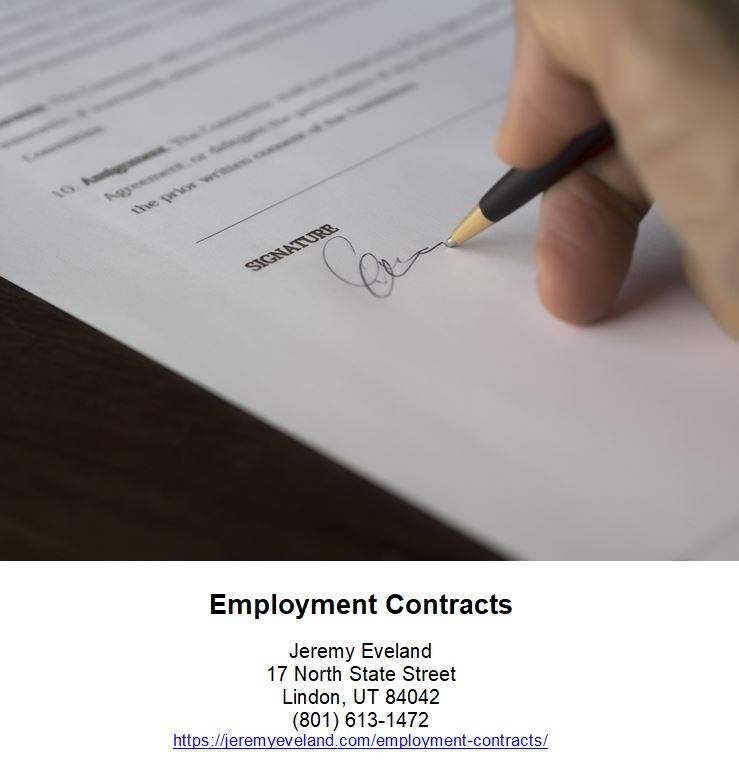Are you a business owner looking to maximize your telemarketing efforts while staying within legal boundaries? Understanding the rules and regulations surrounding telemarketing calling hours is crucial for any company engaging in this form of marketing. In this article, we will provide you with a comprehensive overview of telemarketing calling hours, explaining the restrictions imposed by law and offering expert insights on how to navigate these guidelines effectively. Whether you have questions about the permissible time slots for calling potential customers or need clarification on exemptions for specific industries, we’ve got you covered. Read on to gain a deeper understanding of telemarketing calling hours and discover how they can impact your business.

Telemarketing Calling Hours
Telemarketing calling hours refer to the designated times during which telemarketers are allowed to make sales calls to potential customers. This article will provide an overview of telemarketing calling hours, discuss the importance of understanding these hours, explore the laws and regulations surrounding telemarketing calling hours, highlight the benefits of complying with these hours, offer best practices for managing calling hours, outline the consequences of violating calling hour regulations, provide guidance on determining calling hours for different time zones, address common challenges in managing calling hours, offer tips for maximizing calling hours, and discuss future trends in telemarketing calling hours.
Overview of Telemarketing Calling Hours
Definition of Telemarketing Calling Hours
Telemarketing calling hours are the specific times during which telemarketers are permitted to contact potential customers via phone calls. These hours are typically determined by laws and regulations enforced by government agencies. The purpose of setting specific calling hours is to protect individuals from invasive or unwanted sales calls and to ensure that telemarketing activities are conducted in a responsible and respectful manner.
Purpose of Telemarketing Calling Hours
The purpose of establishing telemarketing calling hours is twofold. Firstly, it provides potential customers with a sense of control over when they can expect to receive sales calls. By limiting the calling hours, individuals are less likely to be disturbed during inconvenient times, such as early morning or late at night. Secondly, it helps telemarketers operate within clear boundaries and reduces the likelihood of customer complaints or legal issues arising from improper calling practices.
Telemarketing Calling Hours for Different Industries
The specific calling hours for telemarketing can vary depending on the industry in which a business operates. For example, certain industries may have stricter calling hour restrictions due to the sensitive nature of their products or services. It is essential for businesses to familiarize themselves with the applicable laws and regulations that govern their specific industry to ensure compliance with calling hour requirements.
Importance of Understanding Telemarketing Calling Hours
Avoiding Penalties and Legal Issues
Understanding telemarketing calling hours is crucial for businesses to avoid potential penalties and legal issues. Violating calling hour regulations can result in hefty fines and damage to a company’s reputation. By adhering to established calling hours, businesses can mitigate the risk of facing legal consequences while maintaining a positive image in the eyes of potential customers.
Enhancing Customer Experience
Another key reason why understanding telemarketing calling hours is vital is because it helps enhance the overall customer experience. By only contacting customers during appropriate hours, businesses demonstrate respect for their time and privacy. This consideration can go a long way in building positive relationships with customers and increasing the likelihood of successful sales conversions.
Increasing Sales and Conversions
Understanding and effectively utilizing telemarketing calling hours can also lead to increased sales and conversions. By reaching potential customers at times when they are most likely to be available and receptive to offers, businesses can optimize their sales efforts. This targeted approach can result in higher conversion rates and ultimately contribute to the growth and success of a business.
Laws and Regulations Regarding Telemarketing Calling Hours
Telephone Consumer Protection Act (TCPA)
The Telephone Consumer Protection Act (TCPA) is a federal law in the United States that regulates telemarketing activities, including calling hours. Under the TCPA, telemarketers are prohibited from making sales calls before 8 a.m. or after 9 p.m. local time at the recipient’s location. This law applies to both landline and mobile phone calls.
Federal Trade Commission (FTC) Rules
The Federal Trade Commission (FTC) also plays a significant role in regulating telemarketing practices. The FTC’s Telemarketing Sales Rule (TSR) outlines various requirements that telemarketers must adhere to, including specific calling hour restrictions. The TSR prohibits telemarketers from calling consumers before 8 a.m. or after 9 p.m.
State-Specific Regulations
In addition to federal laws and regulations, individual states may have their own specific rules regarding telemarketing calling hours. These state-specific regulations can vary, so it is crucial for businesses to be aware of the laws in each state they conduct telemarketing activities in. Some states may have more stringent calling hour restrictions, so businesses must ensure full compliance to avoid legal complications.
Benefits of Complying with Telemarketing Calling Hours
Maintaining a Good Reputation
By complying with telemarketing calling hours, businesses can maintain a good reputation among potential customers. Respecting calling hour restrictions demonstrates professionalism and consideration for individuals’ personal lives. This adherence to calling hours portrays a business as reputable and trustworthy, enhancing the likelihood that customers will engage positively with sales representatives.
Building Trust with Customers
Compliance with telemarketing calling hours is essential for building trust with customers. By only reaching out during designated hours, businesses show respect for customers’ privacy and demonstrate a commitment to responsible marketing practices. This trust-building element can facilitate more meaningful conversations with potential customers and increase the chances of cultivating lasting business relationships.
Reducing Complaints and Negative Feedback
One of the most significant benefits of complying with telemarketing calling hours is the reduction in customer complaints and negative feedback. By avoiding unsolicited calls during inconvenient times, businesses minimize the chances of frustrating potential customers or disrupting their daily routines. This proactive approach helps reduce customer dissatisfaction and ensures a more positive overall customer experience.
Best Practices for Telemarketing Calling Hours
Researching and Understanding Legal Requirements
To ensure compliance with telemarketing calling hours, businesses must thoroughly research and understand the legal requirements. This involves familiarizing themselves with both federal and state-specific regulations that govern calling hour restrictions. By staying up-to-date with any changes or updates to these requirements, businesses can avoid unintentional violations and ensure adherence to calling hour guidelines.
Implementing Time Zone Analysis
As businesses often operate across multiple time zones, it is crucial to implement time zone analysis when determining telemarketing calling hours. This analysis involves considering the time differences between the business’s location and the location of potential customers. By understanding these variances, businesses can schedule their calls accordingly and ensure they are contacting individuals during permitted calling hours.
Using Call Scheduling Software
To simplify the process of managing and adhering to telemarketing calling hours, businesses can utilize call scheduling software. This software allows businesses to plan and schedule their sales calls based on the calling hour restrictions in different regions. It can automate the process of aligning calling hours with various time zones, reducing the chances of errors and ensuring compliance with regulations.
Offering Opt-Out Options to Customers
An important best practice for telemarketing calling hours is to provide opt-out options to customers. Even if calls are made during permitted hours, businesses should respect customers’ preferences and give them the opportunity to decline future calls. This opt-out option can help maintain positive relationships with customers and prevent any potential frustration or dissatisfaction.

Consequences of Violating Telemarketing Calling Hours
Fines and Penalties
One of the significant consequences of violating telemarketing calling hours is the possibility of facing fines and penalties. Regulatory bodies, such as the FTC and state attorney general offices, can impose substantial financial penalties on businesses that fail to comply with calling hour regulations. These fines can range from hundreds to thousands of dollars per violation, potentially resulting in significant financial losses for non-compliant businesses.
Negative Impact on Customer Relationships
Violating telemarketing calling hours can have a negative impact on customer relationships. Customers who receive unsolicited calls during inappropriate times may develop a negative view of the business and be less likely to engage with its offerings in the future. This damage to customer relationships can result in lost sales opportunities and hinder business growth.
Damage to Brand Reputation
Non-compliance with telemarketing calling hours can also damage a business’s brand reputation. Customers who feel their privacy is being invaded or their time is being disrespected are likely to share their negative experiences with others, potentially tarnishing the business’s reputation. This negative word-of-mouth can lead to decreased customer trust and loyalty, making it more challenging for the business to attract and retain customers.
How to Determine Telemarketing Calling Hours for Different Time Zones
Understanding Time Zone Variations
Determining telemarketing calling hours for different time zones requires an understanding of time zone variations. Businesses should identify the time zones of their target customer base and recognize the time differences between those locations and their own. This awareness allows for the establishment of appropriate calling hours that align with both legal requirements and the availability of potential customers.
Using Time Zone Conversion Tools
To simplify the process of determining calling hours for different time zones, businesses can utilize time zone conversion tools. These online tools or software applications provide accurate and up-to-date information on time zone differences, allowing businesses to calculate the appropriate calling hours based on their own location. This ensures that calls are made within legal boundaries and during times convenient for potential customers.
Considering Local Laws and Regulations
Businesses operating in multiple jurisdictions must also consider local laws and regulations when determining telemarketing calling hours. Some regions may have additional or stricter calling hour restrictions, making it essential to stay informed about the laws in each target location. By complying with both federal and local regulations, businesses can ensure full legal compliance and avoid unnecessary complications.

Common Challenges in Managing Telemarketing Calling Hours
Dealing with International Calls
One common challenge in managing telemarketing calling hours is dealing with international calls. Businesses that operate globally or target customers in different countries often encounter time zone differences that can complicate call scheduling. To overcome this challenge, businesses should establish a system for managing international calling hours, taking into account the specific regulations of each country.
Coordinating Across Multiple Time Zones
Managing telemarketing calling hours across multiple time zones can be complex and require effective coordination. Businesses must establish clear guidelines and protocols for scheduling calls across different regions to ensure compliance with calling hour restrictions. Communication and collaboration among team members in various locations are vital to ensure seamless operations and avoid any confusion or misunderstandings.
Adapting to Daylight Saving Time Changes
Daylight Saving Time changes can pose challenges for businesses in managing telemarketing calling hours. This adjustment in time can affect the alignment of calling hours with potential customers’ availability and legal requirements. It is crucial for businesses to stay updated with Daylight Saving Time schedules and make necessary adjustments to their call schedules to maintain compliance and avoid disruption in customer engagement.
Tips for Maximizing Telemarketing Calling Hours
Implement Time Zone-Specific Campaigns
To maximize telemarketing calling hours, businesses can consider implementing time zone-specific campaigns. By tailoring their marketing efforts to specific time zones, businesses can ensure that they are contacting potential customers during their most available and receptive times. This targeted approach can significantly increase the efficiency and effectiveness of telemarketing efforts.
Leverage Caller ID to Increase Answer Rates
Using caller identification (ID) can help increase answer rates during telemarketing calls. By displaying recognizable and legitimate caller IDs, businesses can build trust and credibility with potential customers. This can lead to higher answer rates and more productive sales conversations, ultimately increasing the chances of successful conversions.
Employ Data Analysis for Call Optimization
Analyzing data from previous telemarketing campaigns is essential for call optimization. By examining call metrics such as the time of day, day of the week, or specific time zones that yield the highest conversion rates, businesses can optimize their calling strategies. This data-driven approach allows for more targeted and productive calling, leading to increased sales and better overall campaign outcomes.
Continuously Train and Educate Sales Representatives
Telemarketing calling hours can be maximized through continuous training and education of sales representatives. By equipping sales teams with knowledge about calling hour regulations, time zone differences, and best practices for effective communication, businesses can enhance their sales efforts. Well-informed sales representatives are better equipped to adapt to various time zones, comply with calling hour regulations, and increase sales conversions.
Future Trends in Telemarketing Calling Hours
Advancements in Call Center Technology
The future of telemarketing calling hours will likely see advancements in call center technology. Automation and artificial intelligence (AI) technologies are expected to play a more prominent role in managing and optimizing calling hours. These technologies can help businesses schedule calls based on customer preferences, handle time zone differences seamlessly, and provide real-time insights for improved productivity.
Personalized Calling Hour Preferences
With the increasing focus on personalization in marketing, the future of telemarketing calling hours may involve personalized calling hour preferences. Businesses may allow customers to specify their preferred calling hours, ensuring that calls align with their schedules and preferences. This personalized approach can enhance the customer experience and increase the chances of successful sales conversions.
Integration with Artificial Intelligence
Artificial intelligence (AI) integration is likely to have a transformative impact on telemarketing calling hours. AI-powered tools and platforms can analyze customer data, behavior patterns, and preferences to determine the most effective calling hours for individual customers. By leveraging AI, businesses can optimize their calling strategies and provide a more personalized experience for potential customers.
Conclusion
Understanding and adhering to telemarketing calling hours is essential for businesses engaging in telemarketing activities. Compliance with calling hour regulations helps businesses maintain a good reputation, build trust with customers, and avoid legal complications. By implementing best practices, such as understanding legal requirements, using time zone analysis, employing call scheduling software, and offering opt-out options, businesses can maximize their telemarketing calling hours. Despite the challenges associated with managing calling hours across different time zones, businesses can overcome these obstacles through effective coordination and adaptation. Looking ahead, advancements in call center technology, personalized calling hour preferences, and integration with artificial intelligence are expected to shape the future trends in telemarketing calling hours.
FAQs
1. Can I make sales calls outside of designated telemarketing calling hours?
No, businesses should strictly adhere to the designated telemarketing calling hours to avoid penalties and legal issues. Making sales calls outside of these hours can result in fines and damage to your reputation.
2. Are telemarketing calling hours the same for all industries?
Telemarketing calling hours can vary depending on the industry and specific regulations that govern it. It is essential for businesses to be aware of the calling hour restrictions specific to their industry and operate within those guidelines.
3. How can I determine the telemarketing calling hours for different time zones?
Determining telemarketing calling hours for different time zones requires an understanding of time zone variations and the use of time zone conversion tools. Additionally, considering local laws and regulations in each target location is crucial for compliance.
4. What are the consequences of violating telemarketing calling hours?
Violating telemarketing calling hours can result in fines and penalties imposed by regulatory bodies. It can also have a negative impact on customer relationships and damage a business’s brand reputation.
5. How can I maximize telemarketing calling hours?
To maximize telemarketing calling hours, businesses can implement time zone-specific campaigns, leverage caller ID to increase answer rates, employ data analysis for call optimization, and continuously train and educate sales representatives.
Note: While this article provides a comprehensive overview of telemarketing calling hours, it is essential to consult with legal professionals for specific advice pertaining to your business and industry.



















